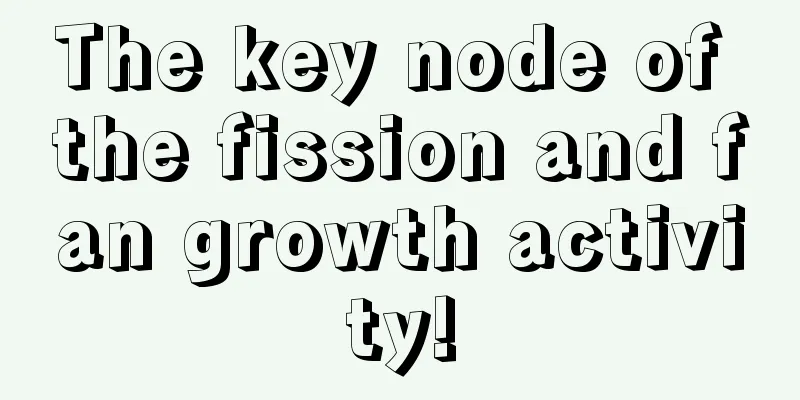Nature published an article to confirm: Can dreams really predict the future?

|
gossip “Has dreaming predicted the future been scientifically proven?” There are rumors online that a study published in Nature magazine proves that the future can be predicted through dreams. Rumor Analysis This is a misinterpretation of the research. The study was conducted on mice and proved that when mice dream, their brains simulate possible problems based on existing knowledge and experience, which is completely different from predicting the future. Recently, a study published in Nature has attracted widespread attention, and many netizens have discussed that "humans can predict the future through dreams." This has led many friends to believe that this provides a scientific basis for the mystery of dreams and the so-called "prophetic dreams." So is this statement correct? Although this study found that some neurons in the brain will recreate past experiences when we dream, and will also simulate situations that we have not yet experienced but may experience in the future. However, this experiment was only conducted on mice, and it was only found that the mouse brain would simulate the environment that might be encountered based on existing experience and knowledge, rather than true predictions. Mistaking this simulation for a prediction is unscientific and an over-interpretation of the research results. The other conclusions of this study are also worth pondering for those of us who often stay up late, so let's talk about them in detail below. How does sleep simulate unexperienced situations? In daily life, we can often clearly feel the huge impact of sleep quality on learning and memory. Scientists have long been aware of this and have confirmed this phenomenon through a large number of studies. They found that sleep is particularly important for the hippocampus, a key structure in the brain responsible for memory and learning, because sleep affects the signal transmission, activity level and connection mode between hippocampal neurons. The hippocampus is a key structure responsible for memory and spatial navigation. It is located deep in the temporal lobe of the brain and is named after its shape, which resembles a seahorse. There is one hippocampus in each hemisphere of the brain. The hippocampus in the brain (Image source: Reference [3]) To better understand how the brain regulates and processes information during sleep, scientists conducted this study. They first let mice explore a maze to find rewards, and then recorded the brain activity of the mice during maze activities and resting sleep. By using a new machine learning algorithm, the research team tracked and analyzed the activity of neurons in the mouse hippocampus and found that when mice sleep, the neurons in the brain will reproduce their activity patterns when exploring the maze. This means that the brain will replay the mouse's experience in the maze in the mouse's dream to help these short-term memories evolve into long-term memories. In addition, another part of the neurons in the mouse's brain will simulate the new scene when the mouse encounters the maze again in the future based on this memory during sleep, preparing for future exploration and activities. Therefore, when put back into the maze environment again, the mouse behaves as if it has experienced it in a dream. So dreaming is more of a "rehearsal" than a "prediction." Brain activity in mice that get enough sleep (left) and mice that lack sleep (right) (Image source: Reference [4]) Compared with mice that received adequate sleep (left), sleep-deprived mice (right) showed more frequent brain activity, but their intensity was significantly reduced. Based on this study, scientists further discovered that if mice do not get enough sleep, the memory process of replay and rehearsal will be greatly weakened. When lacking sleep, although the activities in the mouse brain are more frequent, their intensity is significantly reduced, resulting in a significant reduction in neuronal activity and memory playback. The mice cannot effectively reproduce the experience of maze exploration during sleep. Even after returning to normal sleep, these activities cannot be fully restored to normal levels. This also reminds us that ensuring adequate sleep is essential to maintaining normal brain function and promoting memory consolidation. The link between sleep and memory In experiments with mice, lack of sleep significantly reduced memory recall and neuronal reactivation in the hippocampus. In studies on humans, lack of sleep also led to a decline in memory performance and cognitive function. Through techniques such as electroencephalography (EEG) and functional magnetic resonance imaging (fMRI), researchers also observed that lack of sleep leads to reduced activity in memory-related areas of the brain, negatively affecting both short-term and long-term memory. Many students often sacrifice sleep time to study, and from the above research we can infer that this practice is not scientific. Copyright image, no permission to reprint As early as 1924, Jenkins and Dallenbach demonstrated the beneficial effects of sleep on memory through experimental studies. Since then, the important role of sleep in memory formation has been gradually confirmed in many studies. Now scientists generally agree that sleep provides a window for the brain to organize and consolidate newly encoded memories without a lot of external information input. While we are awake, memories are constantly being formed as new sensory experiences flow in. During sleep, countless neural networks involved in memory processing are endogenously activated, and the brain reproduces the activity patterns of neurons when awake. Neurons in the hippocampus also reactivate and synchronize with neurons in the cerebral cortex, and this reactivation helps transfer newly encoded memories from the hippocampus to the neocortex, forming long-term memories. Memory reactivation forms long-term memory (Image source: Reference [2]) Once sleep is insufficient, neurons in the hippocampus are difficult to reactivate, resulting in the brain being unable to effectively reproduce the activity patterns of waking hours. This has significant and extensive effects on the brain and memory: it reduces the frequency of neuronal reactivation and memory retrieval, disrupts the synaptic remodeling process, affects the quality and depth of sleep, and leads to an overall decline in memory performance and cognitive function. And this negative impact cannot be fully compensated by a short period of recovery sleep. Therefore, ensuring adequate sleep is essential for students and all those who need to learn and remember efficiently. summary Sleep plays a key role in the transformation and consolidation of memory, but many aspects of the process remain unknown. Through further research, we hope to reveal the mysteries of these complex processes, thereby improving our understanding of brain function, improving learning and memory, and providing new treatment strategies to address sleep and memory-related diseases. But this experiment has nothing to do with the so-called "predicting the future." Looking in the mirror of rumors Many rumors are the result of over-interpretation of scientific research papers. If we look at the abstracts of the original studies, we will find that those rumors are often based on the direct application of animal experiment results to humans, or the replacement of certain specific cancers mentioned in the study with the general term "cancer", or, as in this article, the wrong conclusions of the study. Of course, we may not have the time or energy to read the original paper. In this regard, we only need to understand that even if the latest research in an authoritative journal is correctly interpreted, its conclusions often require more research to verify, and are usually far from our daily lives, so there is no need to waste energy on it. Author: Denovo Popular Science Writer PhD in Analytical Chemistry Reviewer: Li Jingjing, Professor and Chief Physician, Department of Neurology, Beijing Tiantan Hospital |
>>: Feeling overheated physically? Remember to cool down your mind, too.
Recommend
How to plan a complete and efficient event? (Four)
This article mainly discusses how to do a complet...
When one type of pasta falls from grace, another type of pasta rises
Steamed buns, noodles, pancakes... Bread, cake, p...
To tell a good brand story, you must learn the four golden principles
Why do brands need to tell stories? Stories are a...
Momo information flow advertising skills, play with pan-entertainment social information flow advertising!
Written in front Momo is a pan-entertainment soci...
3 tips for refined operation strategies!
As the cost of acquiring traffic gradually increa...
The college entrance examination papers were printed in prison? What happened? Revealed!
The annual college entrance examination kicked of...
A must-read for advanced operators | 1 center and 3 basic points of content operation!
When you enter a product, you are actually enterin...
What are the subsidy policies for fourth child in 2022? Has the country abolished the policy of fines for having four children?
Since July 2021, my country has relaxed the three...
Just now, the 2022 Nobel Prize in Chemistry was announced. They won the award for click chemistry and bioorthogonal chemistry
At 5:45 pm Beijing time on October 5, 2022, the 2...
300 fans can earn 1500 yuan a day. How to write articles that will make money as soon as they are published [paid articles]
00 fans can earn 1500 yuan a day, how to write ar...
Why is it so hot this year? Extremely high temperatures and long-term standby in many parts of my country
Recently, the heat wave and hot weather have made...
A must-read for APP promoters | Global ranking price list!
The behavior of manipulating the rankings has alw...
"High-spread" fission poster design method
This time, the author will talk to you about thin...
Surprise: Hackers love to set simple passwords
When we are online, we are always afraid that hack...
How to create popular content on Douyin?
Suddenly, the brainwashing songs everyone listene...









